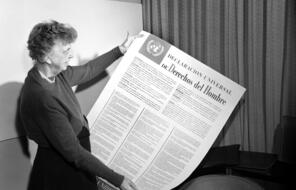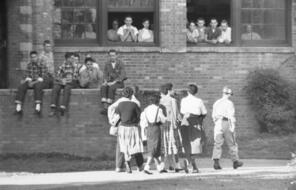Resource Library
Find compelling classroom resources, learn new teaching methods, meet standards, and make a difference in the lives of your students.
We are grateful to The Hammer Family Foundation for supporting the development of our on-demand learning and teaching resources.

Introducing Our US History Curriculum Collection
Draw from this flexible curriculum collection as you plan any middle or high school US history course. Featuring units, C3-style inquiries, and case studies, the collection will help you explore themes of democracy and freedom with your students throughout the year.
3281 Results
10 Questions for Young Changemakers
This unit uses the 10 Questions Framework to explore two examples of youth activism: the 1963 Chicago schools boycott and the present-day movement against gun violence launched by Parkland students.

Activities for the First Days of School
These first-week-of-school activities create welcoming learning environments that prioritize care, relationships, and community.

The Reconstruction Era and the Fragility of Democracy
Use this rich collection of Reconstruction era primary sources, videos, and a 3-week unit to engage your students in this pivotal period in US history and its legacies today.
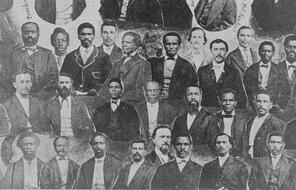
Back to School: Building Community for Connection and Learning
These back-to-school activities and teacher resources will help you lay a foundation for a reflective and caring community at the start of the school year.
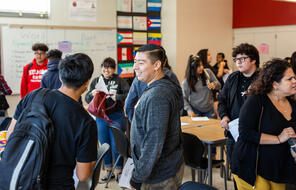
The Reconstruction Era Primary Sources
Enrich your teaching on the Reconstruction era with these primary source documents and images.
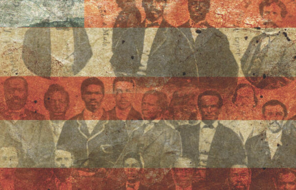
Teaching An Inspector Calls
Use this unit to transform how you teach J.B. Priestley's play and support your students in becoming effective writers, critical thinkers, and socially responsible citizens, who excel in their GCSEs.

Stratégies et Techniques Pédagogiques
Les stratégies et techniques pédagogiques incluses dans cette boîte à outils aident à développer la réflexion, l’implication en classe et l’analyse critique de nos jeunes élèves.

Enseignement moral et civique
Cette catégorie comprend des ressources pour vous aider à aborder des sujets tels que l’antisémitisme et la lutte contre les inégalités.

Climat Scolaire
Les ressources de cette catégorie sont destinées à vous aider à créer un climat bienveillant en classe avec les jeunes afin de vous permettre d’aborder plus facilement des sujets sensibles et délicats d’une façon visant à renforcer les valeurs et principes de la démocratie.

Teaching Holocaust and Human Behaviour (UK)
Lead your students through a detailed and challenging study of the Holocaust that asks what this history can teach us about the power and impact of choices.

Universal Declaration of Human Rights
Use this unit to help students gain context on the drafting of the Universal Declaration of Human Rights, the role of Eleanor Roosevelt in its creation, and the legacies of this document today.
